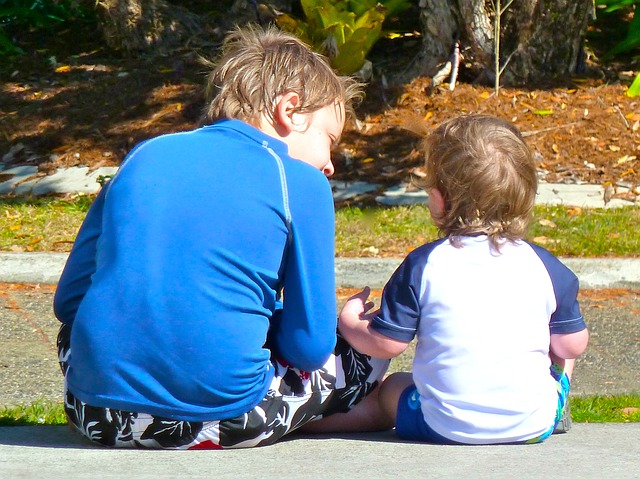The superlative is used when you are comparing one thing to everything else in a group. You can also do this using the comparative.
Examples:
David is a taller boy than everyone else in his class. (Comparative)
David is the tallest boy in his class. (Superlative)
This movie is more interesting than all the others we’ve seen. (Comparative)
This movie is the most interesting one we’ve seen. (Superlative)
You are lazier than all of my other friends. (Comparative)
You are the laziest of all my friends. (Superlative)
1. There are 3 ways to form the superlative. The first way is to add -est. Do this with all one-syllable adjectives or adverbs. Also put the (or a possessive adjective) before the adjective/adverb. The group is usually put last but can also go first.
Examples:
Peter runs the fastest in the whole school.
Of all the students in this class, Maria studied the longest.
That was my hardest test ever.
Exception: The word fun can be used 2 different ways:
Fun can be an adjective and used with both most and -est:
The most fun ride we went on was the roller coaster.
The funnest ride we went on was the roller coaster.
Fun can be a noun and used only with the most:
This is the most fun we’ve had in years.
You don’t always have to put the group.
Examples:
Where is the nearest pharmacy? (group = all the pharmacies in the city)
That’s not fair. He took the largest piece. (group = the whole pizza)
It was his proudest moment. (group = all the proud moments in his life)
If a 1-syllable adjective ends in one vowel and one consonant, then double the consonant when adding -est. If a 2-syllable adjective ends in one vowel and one consonant, and the accent is on the last syllable, then double the consonant when adding -est. (This rule is the same for comparatives before adding -er.)
Examples:
They live in the biggest house in the neighborhood.
This pizza has the thinnest crust of any that they make.
She has the reddest hair of anyone in her family.
If an adjective or adverb has 2 syllables ending with y, change the y to i and then add -est
Examples:
This has been the cloudiest month since we moved here.
My younger brother goes to bed the earliest. (in our family)
She’s the prettiest girl in school.
These adjectives/adverbs are irregular: good/well, bad/badly and far/far. The superlative forms are: the best, the worst, and the farthest (or furthest.)
Examples:
That restaurant makes the best pizza in town.
Although she sang the worst in the choir, she had a lot of fun.
Voyager is the farthest human-made object from Earth.
2. The second way is to put the most before most adjectives of two or more syllables. Two-or-more-syllable adverbs all have -ly on the end, and use the most.
Examples:
I want to see who can ask the most nicely.
He is the most caring person I know.
She types the most quickly of anyone in her class.
The following 2-syllable adjectives use -est or most but not both at the same time. (This is the same list for comparatives.)
able angry clever common cruel friendly gentle handsome narrow pleasant polite quiet simple sour
Examples:
Canadians are the politest people I know.
Canadians are the most polite people I know.
He’s the ablest programmer in the company.
He’s the most able programmer in the company.
The simplest way to do this is to follow the directions.
The most simple way to do this is to follow the directions.
Adjectives and adverbs of 3 or more syllables always use the most.
Examples:
That was the most interesting lecture I’ve heard in years.
She sings the most beautifully of anyone I’ve heard.
He bought the most expensive diamond ring he could afford.
The most can also be used with no adjective or adverb following:
Examples:
I eat a lot, but my sister eats the most.
It’s the most I can do at this time.
She does the most to help out the family.
The most can also be used before a noun.
Examples:
He picked the most strawberries.
When my brother and I went to Las Vegas, he lost the most money.
She has the most patience of anyone I know.
3. The third way is to put the least before the adjective or adverb. This is done with all adjectives and adverbs regardless of how many syllables.
Examples:
Of all the people in this office, you seem to be the least busy.
The least costly iPad I could find sells for $150.
He was trying to breathe the least noisily that he could.
Not the least bit means not at all.
Examples:
I’m not the least bit tired, so let’s get started.
You’re not the least bit interested in what I’m saying, are you?
She told me she wasn’t the least bit nervous before her interview.
The least can also be used alone with no adjective or adverb:
Examples:
It’s the least I can do.
Of all the people in her family, her sister talks the least.
I’m the one who exercises the least in my family.
The least can also be used before a noun. In this way the least becomes an adjective for the noun.
Examples:
She makes the least money of anyone in her family.
The winning typist had the least number of mistakes.
We want to go when there’s the least amount of traffic.
Your Score:
Your Ranking:
© 2013 Ambien Malecot









